Blog
Wilder Community Center for the Elderly in St Paul. November 11th & 13th 945-1145 in Great Room. 1-230 in Day Room.
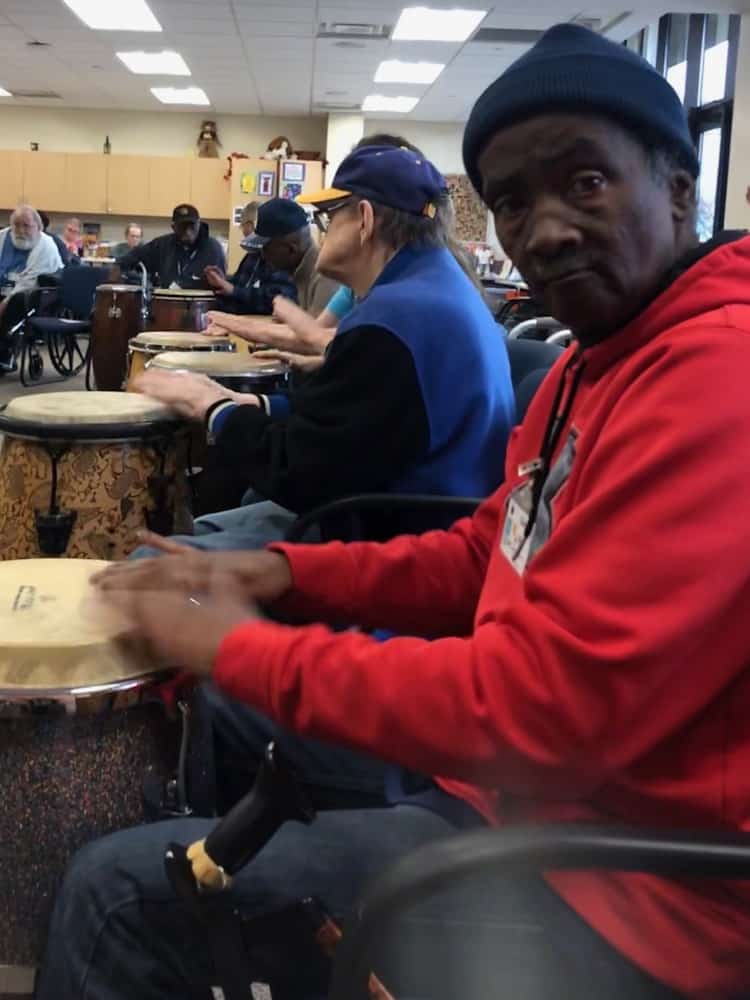
Alnitak, Alnilam, and Mintaka, are the bright bluish stars from east to west (lower right to upper left) along the diagonal in this cosmic vista. Otherwise known as the Belt of Orion, these three blue supergiant stars are hotter and much more massive than the Sun. They lie from 800 to 1,500 light-years away, born of Orion’s well-studied interstellar clouds. In fact, clouds of gas and dust adrift in this region have some surprisingly familiar shapes, including the dark Horsehead Nebula and Flame Nebula near Alnitak at the lower right. The famous Orion Nebula itself is off the right edge of this colorful starfield. This well-framed, 2-panel telescopic mosaic spans about 4 degrees on the sky.
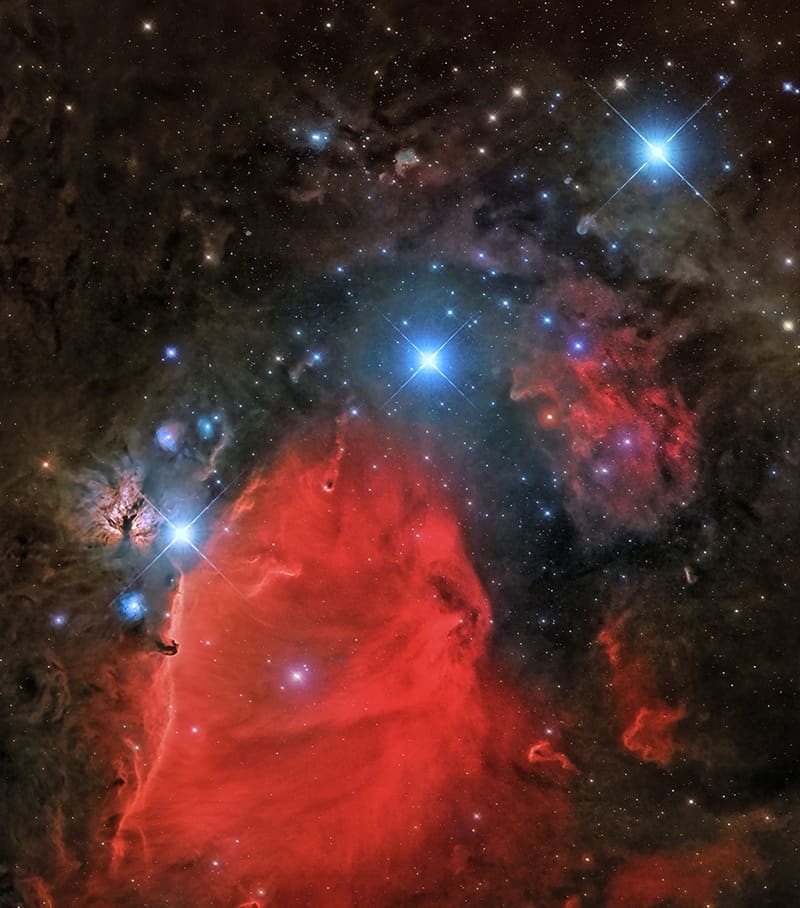
Delores LaVern Baker (November 11, 1929 – March 10, 1997) was an American rhythm-and-blues singer who had several hit records on the pop chart in the 1950s and early 1960s. Her most successful records were “Tweedle Dee” (1955), “Jim Dandy” (1956), and “I Cried a Tear” (1958).
Baker was born Delores Evans in Chicago. Some sources refer to her as Delores Williams, the name by which she was known during her early marriage to Eugene Williams.
more...Walter Louis Garland (11 November 1930 – 27 December 2004) professionally Hank Garland, was an American guitarist and songwriter. He started as a country musician, played rock and roll as it became popular in the 1950s, and released a jazz album in 1960. His career was cut short when a car accident in 1961 left him unable to perform.
Born in Cowpens, South Carolina, Garland began playing guitar at the age of six. He appeared on local radio shows at 12 and was discovered at 14 at a South Carolina record store.
He moved to Nashville at age 16, staying in Ma Upchurch’s boarding house, where he roomed with Bob Moore and Dale Potter. At age 18, he recorded his million-selling hit “Sugarfoot Rag“. He appeared on the Jubilee program with Grady Martin‘s band and on The Eddy Arnold Show. Garland is perhaps best known for his Nashville studio work with Elvis Presley from 1958 to 1961 which produced such rock hits as: “I Need Your Love Tonight”, “A Big Hunk o’ Love”, ” I’m Coming Home”, “I Got Stung”, “A Fool Such As I”, “Stuck on You”, “Little Sister”, “(Marie’s The Name) His Latest Flame”, and “I Feel So Bad”. He worked with many country music rock and roll musicians of the late 1950s and early 1960s, such as Patsy Cline, Brenda Lee, Mel Tillis, Marty Robbins, The Everly Brothers, Boots Randolph, Roy Orbison, Conway Twitty, and Moon Mullican.
more...Ernestine Anderson (November 11, 1928 – March 10, 2016) was an American jazz and blues singer. In a career spanning more than six decades, she recorded over 30 albums. She was nominated four times for a Grammy Award. She sang at Carnegie Hall, the Kennedy Center, the Monterey Jazz Festival (six times over a 33-year span), as well as at jazz festivals all over the world. In the early 1990s she joined Qwest Records, the label founded by fellow Garfield High School graduate Quincy Jones.
Ernestine Irene Anderson (and her twin sister Josephine) were born in Houston, Texas, on November 11, 1928. Her mother, Erma, was a housewife, and her father, Joseph, a construction worker who sang bass in a gospel quartet. By the age of three, Anderson showed a talent for singing along with her parents’ old blues 78 rpm records by the likes of Bessie “The Empress of the Blues” Smith. Anderson started singing at a local church, singing solos in its gospel choir.
Anderson tells of her early life in the 1998 book The Jazz Scene:
- “My parents used to play blues records all the time,” Ernestine Anderson told me. “John Lee Hooker, Muddy Waters, all the blues greats. In Houston, where I grew up, you turned on the radio and what you got was country and western and gospel. I don’t even remember what my first experience with music was. I sort of grew into it. My father sang in a gospel quartet and I used to follow him around, and both my grandparents sang in the Baptist church choir. And they had big bands coming through Houston like Jimmie Lunceford, Billy Eckstine, Erskine Hawkins, and Count Basie.” Ernestine’s godmother entered her in a local talent contest when she was twelve years old. “I only knew two songs,” she admitted, “‘On the Sunny Side of the Street‘ and ‘So Long’. The piano player asked me what key did I do these songs in and I just said ‘C’ for some reason and it was the wrong key. In order to save face I sang around the melody, improvised among the melody, and when I finished one of the musicians told me I was a jazz singer.”
Her family moved to Seattle, Washington, in 1944, when she was 16. Anderson attended Garfield High School, graduating in 1946. While a teenager, she was discovered by bandleader “Bumps” Blackwell, who hired her as a singer for his Junior Band. Anderson’s first show was at the Washington Social Club on East Madison Street. The band (which later included Quincy Jones on trumpet, and a young Ray Charles on keyboard) performed regularly in jazz clubs on Seattle’s Jackson Street.
https://www.youtube.com/watch?v=xiGNHGGsG1M
more...Mose John Allison Jr. (November 11, 1927 – November 15, 2016) was an American jazz and blues pianist, singer, and songwriter. He became notable for playing a unique mix of blues and modern jazz, both singing and playing piano. After moving to New York in 1956, he worked primarily in jazz settings, playing with jazz musicians like Stan Getz, Al Cohn, and Zoot Sims, along with producing numerous recordings.
He is described as having been “one of the finest songwriters in 20th-century blues.” His songs were strongly dependent on evoking moods, with his individualistic, “quirky”, and subtle ironic humor. His writing influence on R&B had well-known fans recording his songs, among them Pete Townshend, who recorded his “Young Man Blues” for the Who‘s Live At Leeds album in 1970. John Mayall was one of dozens who recorded his classic, “Parchman Farm“, and Georgie Fame used many of Allison’s songs. Others who recorded his songs included Leon Russell (“I’m Smashed”) and Bonnie Raitt (“Everybody’s Crying’ Mercy”).
The 1980s saw an increase in his popularity with new fans drawn to his unique blend of modern jazz. In the 1990s he began recording more consistently. Van Morrison, Georgie Fame and Ben Sidran collaborated with him on a tribute album, Tell Me Something: The Songs of Mose Allison. The Pixies wrote the song “Allison” as a tribute.
Allison’s music had an important influence on other artists, such as Jimi Hendrix, J. J. Cale, the Yardbirds, the Rolling Stones, Tom Waits, and Pete Townshend. He was inducted into the Long Island Music Hall of Fame in 2006. Allison was born outside Tippo, Mississippi, on his grandfather’s farm, known as the Island, “because Tippo Bayou encircles it.” He took piano lessons at 5, picked cotton, played piano in grammar school and trumpet in high school, and wrote his first song at 13.
Local History through the music of Gordon Lightfoot!
more...44 years ago the Edmund Fitzgerald sank in Lake Superior.
There have been many other shipwrecks on Lake Superior over the years. Many other mammoth November storms. Many other lives lost. But thanks in large part to singer Gordon Lightfoot, one shipwreck stands above the rest in the Great Lakes’ collective memory: the Edmund Fitzgerald. Sunday, Nov. 10, marks the 44th anniversary of the sinking of the Fitzgerald in a November gale on eastern Lake Superior with the loss of all 29 men aboard — a tragedy memorialized by Lightfoot in the now-iconic song he released the following year.
As the song recounts, the “Mighty Fitz” had left Superior on Nov. 9 with a load of iron ore pellets, and made its way across Lake Superior as a storm intensified. The Fitzgerald spent hours battling wind and waves, making its way toward Whitefish Point. On the evening of Nov. 10, 1975, the captain of the Fitzgerald, Ernest McSorley, radioed to the neaby freighter Arthur M. Anderson that the Fitzgerald crew was, quote, “holding our own.” Soon after, the Fitzgerald sank without giving a distress signal. On its final voyage across Lake Superior, the Fitzgerald passed several miles offshore from Split Rock Lighthouse, on Minnesota’s North Shore. And each Nov. 10 since 1985, the 10th anniversary of the wreck, the lighthouse has hosted a memorial ceremony and beacon lighting.

more...
Mercury will pass over Sun tomorrow morning & we should be able to see it here in Minnesota.
Mercury – the innermost planet of our solar system – will transit the sun on November 11, 2019. In other words, Mercury will pass directly in front of the sun and be visible through telescopes with solar filters as a small black dot crossing the sun’s face. It’ll be visible in part from most of Earth’s globe. The entire transit is visible from South America, eastern North America, and far-western Africa. The last transit of Mercury was in 2016. The next one won’t be until 2032.
Be aware that this is a morning event on November 11, according to U.S. clocks. Mercury will come into view on the sun’s face around 7:36 a.m. Eastern Standard Time (12:36 UTC; translate UTC to your time) on November 11. It’ll make a leisurely journey across the sun’s face, reaching greatest transit (closest to sun’s center) at approximately 10:20 a.m. EST (15:20 UTC) and finally exiting around 1:04 p.m. EST (18:04 UTC). The entire 5 1/2 hour path across the sun will be visible across the U.S. East – with magnification and proper solar filters – while those in the U.S. West can observe the transit already in progress after sunrise.
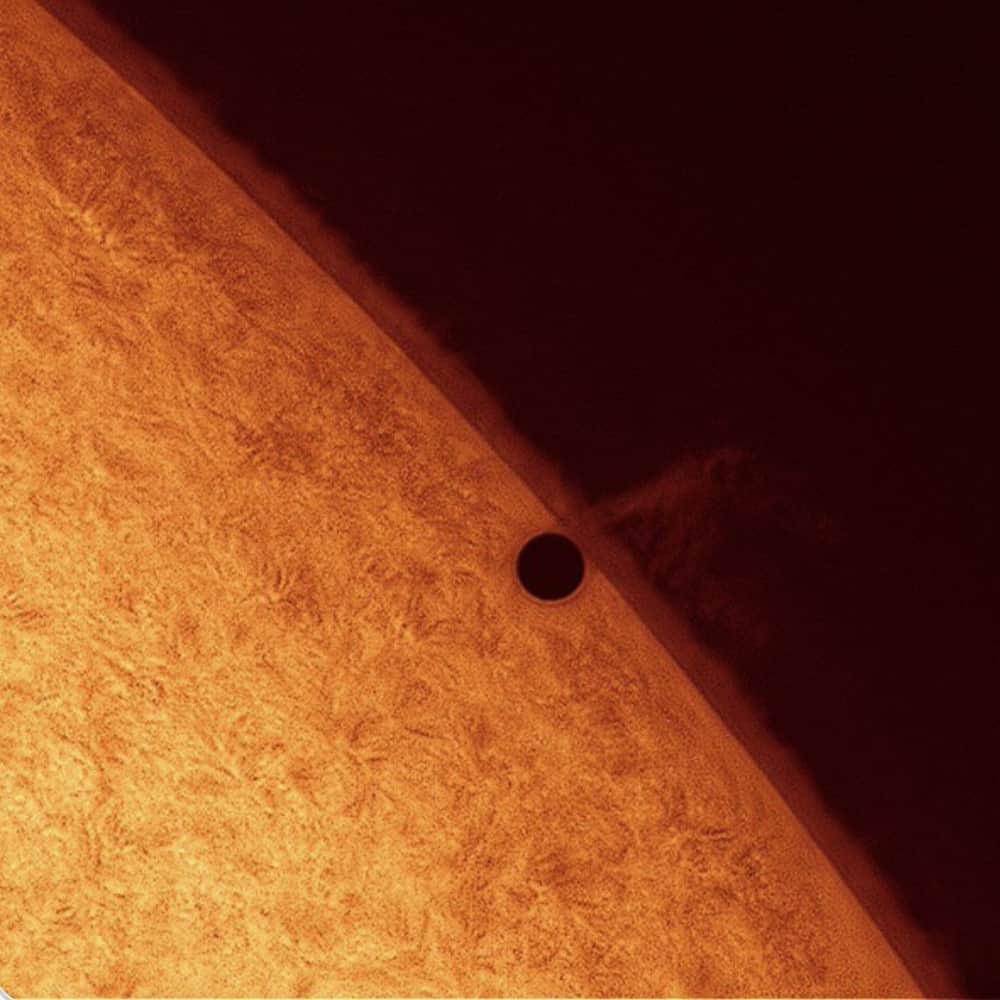
more...
The Eagle Nebula (M16) doesn’t look its usual red in this image. That’s because the photographer shot through Sulfur-II, Hydrogen-alpha, and Oxygen-III filters, and then assigned colors that would bring out details best to each filter. M16 is famous for housing the feature known as the Pillars of Creation. The Eagle Nebula is part of a diffuse emission nebula, or H II region, which is catalogued as IC 4703. This region of active current star formation is about 7000 light-years distant. A spire of gas that can be seen coming off the nebula in the northeastern part is approximately 9.5 light-years or about 90 trillion kilometers long.
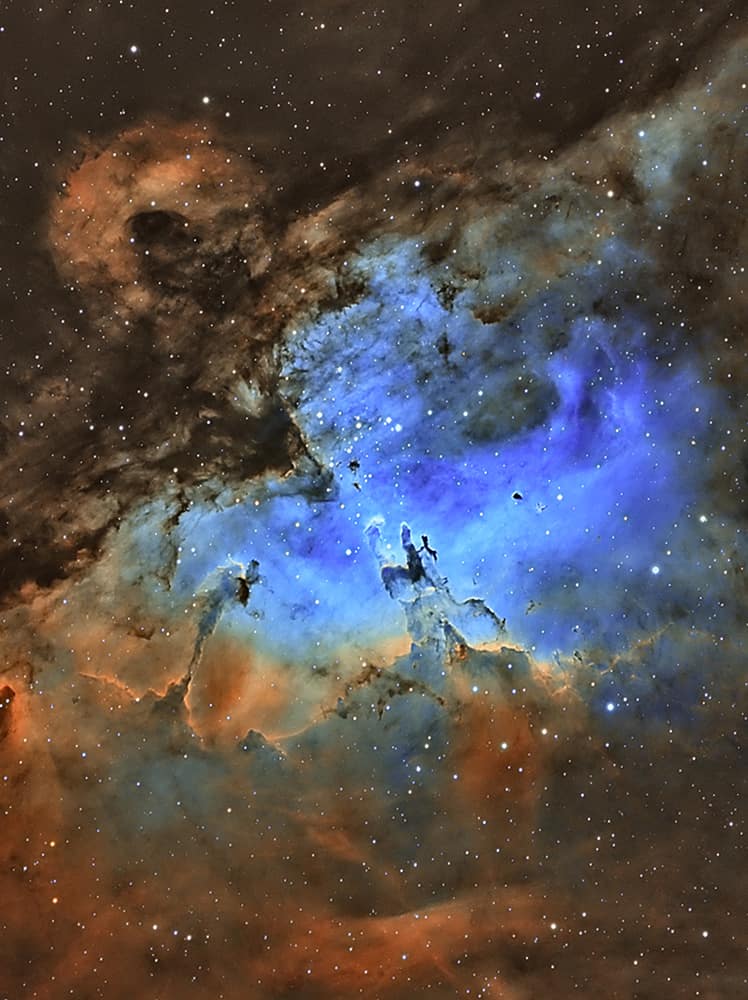
Hubert Laws (born November 10, 1939) is an American flutist and saxophonist with a career spanning over 50 years in jazz, classical, and other music genres. Considering the artistry of the late Eric Dolphy and the popularity of the late Herbie Mann, Laws is notably in the company of the most recognized and respected jazz flutists in the history of jazz, (also the most imitated). Laws is one of the few classical artists who has also mastered jazz, pop, and rhythm-and-blues genres, moving effortlessly from one repertory to another. Hubert Laws, Jr. was born November 10, 1939, in the Studewood section of Houston, Texas, the second of eight children to Hubert Laws, Sr. and Miola Luverta Donahue.
While at Juilliard, Laws played flute during the evenings with several acts, including Mongo Santamaría, 1963–67 and in 1964 began recording as a bandleader for Atlantic, and he released the albums The Laws of Jazz, Flute By-Laws, and Laws Cause. He appeared on albums by Ashford & Simpson, Chet Baker, George Benson, and Moondog. He recorded with his younger brother Ronnie on the album The Laws in the early 1970s. He played flute on Gil Scott-Heron‘s 1971 album Pieces of a Man, which featured the jazz poem “The Revolution Will Not Be Televised”. During the 1970s he was a member of the New York Jazz Quartet. He can also be heard playing tenor saxophone on some records from the 1970s.
In 1980 he had a minor hit with the tune “Family” on CBS records played on many UK soul radio stations.
In the 1990s Laws resumed his career, playing on the 1991 Spirituals in Concert recording by opera singers Kathleen Battle and Jessye Norman. His albums on the Music Masters Jazz label—My Time Will Come in 1990 and, more particularly, Storm Then Calm in 1994—are regarded by critics as a return to the form he exhibited on his early 1970s albums. He also recorded a tribute album to jazz pianist and pop-music vocalist Nat King Cole, Hubert Laws Remembers the Unforgettable Nat King Cole, which received critical accolades. Among the many artists he has played and recorded with are Herbie Hancock, McCoy Tyner, Nancy Wilson, Quincy Jones, Paul McCartney, Paul Simon, Aretha Franklin, Ella Fitzgerald, Sarah Vaughan, Lena Horne, Leonard Bernstein, James Moody, Jaco Pastorius, Sérgio Mendes, Bob James, Carly Simon, George Benson, Clark Terry, Stevie Wonder, J. J. Johnson, and The Rascals. In 1998, Laws recorded with Morcheebafor the Red Hot Organization‘s compilation album Red Hot + Rhapsody, a tribute to George Gershwin, which raised money for various charities devoted to increasing AIDS awareness and fighting the disease.
https://www.youtube.com/watch?v=sdetER25-Mw
more...Russell Charles Means (November 10, 1939 – October 22, 2012) was an Oglala Lakota activist for the rights of American Indian people, libertarianpolitical activist, actor, writer and musician, who became a prominent member of the American Indian Movement (AIM) after joining the organization in 1968 and helped organize notable events that attracted national and international media coverage.
Means was active in international issues of indigenous peoples, including working with groups in Central and South America and with the United Nations for recognition of their rights. He was active in politics at his native Pine Ridge Indian Reservation and at the state and national level.
Beginning an acting career in 1992, he appeared on numerous television series and in several films, including The Last of the Mohicans and released his own music CD. He published his autobiography Where White Men Fear to Tread in 1995. Means died in 2012, less than a month before his 73rd birthday. Means was born in Porcupine, South Dakota, on the Pine Ridge Indian Reservation, to Theodora Louise Feather and Walter “Hank” Means. His mother was a Yankton Dakota from Greenwood, South Dakota and his father, an Oglala Lakota. As well as Russell, the family had two other boys (William “Bill” and Warren) and three girls (Madonna, Mabel Ann and Phyllis). He was given the name Wanbli Ohitika by his mother, which means “Brave Eagle” in the Lakota language.
Means participated in the 1969 Alcatraz occupation. He had been there once before, to occupy it for 24 hours under the lead of his father, Walter “Hank” Means, and a few other Lakota men in March 1964 (Means’ father died in January 1967).
On Thanksgiving Day 1970, Means and other AIM activists staged their first protest in Boston: they seized the Mayflower II, a replica ship of the Mayflower, to protest the Puritans’ and United States’ mistreatment of Native Americans. In 1971 Means was one of the leaders of AIM’s takeover of Mount Rushmore, a federal monument. Rushmore is within the Black Hills, an area sacred to the Lakota tribe.
In November 1972, he participated in AIM’s occupation of the Bureau of Indian Affairs (BIA) headquarters in Washington, D.C. to protest abuses. Many records were taken or destroyed, and more than $2 million in damages was done to the building.
In 1973, Dennis Banks and Carter Camp led AIM’s occupation of Wounded Knee, which became the group’s most well-known action. Means appeared as a spokesman and prominent leader. The armed standoff of more than 300 Lakota and AIM activists with the Federal Bureau of Investigation (FBI) and state law enforcement lasted for 71 days. A visiting Cherokee from North Carolina and an Oglala Lakota activist from Pine Ridge Reservation were killed in April.
more...
Andrew Charles Cyrille (born November 10, 1939) is an American avant-garde jazz drummer. Throughout his career, he has performed both as a leader and a sideman in the bands of Walt Dickerson and Cecil Taylor, among others.
Cyrille was born on November 10, 1939, in Brooklyn, New York into a Haitian family. He began studying science at St. John’s University, but was already playing jazz in the evenings and switched his studies to the Juilliard School. His first drum teachers were fellow Brooklyn-based drummers Willie Jones and Lenny McBrowne; through them, Cyrille met Max Roach. Nonetheless, Cyrille became a disciple of Philly Joe Jones, who in some performances such as Time Waits used Cyrille’s drum kit.
His first professional engagement was as an accompanist of singer Nellie Lutcher, and he had an early recording session with Coleman Hawkins.Trumpeter Ted Curson introduced him to pianist Cecil Taylor when Cyrille was 18.
more...Hyman Paul Bley, CM (November 10, 1932 – January 3, 2016) was a Canadian pianist known for his contributions to the free jazz movement of the 1960s as well as his innovations and influence on trio playing and his early live performance on the Moog and Arp audio synthesizers. Bley was a long-time resident of the United States. His music has been described by Ben Ratliff of the New York Times as “deeply original and aesthetically aggressive”. Bley’s prolific output includes influential recordings from the 1950s through to his solo piano records of the 2000s.
Bley was born in Montreal, Quebec, on November 10, 1932. As a teenager he played with touring American bands, including Al Cowan’s Tramp Band. In 1949, when Bley was starting his senior year of high school, Oscar Peterson asked Bley to fulfill his contract at the Alberta Lounge in Montreal. The next year Bley left Montreal for New York City and Juilliard.
In 1951, on a return trip to Montreal, Bley organized the Jazz Workshop with a group of Montreal musicians. In 1953 Bley invited the bebop alto saxophonist and composer Charlie Parker to the Jazz Workshop, where he played and recorded with him. When Bley returned to New York City he hired Jackie McLean, Al Levitt and Doug Watkins to play an extended gig at the Copa City on Long Island. From the early 1950s until 1960 Paul did a series of trios with Al Levitt and Peter Ind; recordings of this trio in 1954 were included in the Mercury album “Paul Bley”. In 1953 the Shaw Agency booked Bley and his trio to tour with Lester Young, billed as “Lester Young and the Paul Bley Trio” in ads. He also performed with tenor saxophonist Ben Webster at that time. He then conducted for bassist Charles Mingus on the Charles Mingus and His Orchestra album. Additionally, in 1953, Mingus produced the Introducing Paul Bley album for his label, Debut Records with Mingus on bass and drummer Art Blakey. (In 1960 Bley recorded again with the Charles Mingus Group.)
In 1954 Bley received a call from Chet Baker inviting him to play opposite Baker’s quintet at Jazz City in Hollywood, California for the month of March. This was followed by a tour with singer Dakota Staton.
Down Beat Magazine interviewed Bley for its July 13, 1955 issue. The prescient title of the article read, “PAUL BLEY, Jazz Is Just About Ready For Another Revolution”. The article, reprinted in Down Beat’s 50th Anniversary edition, quoted Bley as saying, “I’d like to write longer forms, I’d like to write music without a chordal center.”
Bley’s trio with Hal Gaylor and Lennie McBrowne toured across the US in 1956, including a club in Juarez. Mexico. The tour culminated with an invitation to play a 1956 New Year’s Eve gig at Lucile Ball and Desi Arnez‘s home in Palm Springs. During the evening, Bley collapsed on the bandstand with a bleeding ulcer and Lucy immediately took him to the Palm Springs hospital where she proceeded to pay for all of his medical care. Bley, who had met Karen Borg while she was working as a cigarette girl at Birdland in NYC, married her after she came out to meet him in Los Angeles, where she became Carla Bley.
https://www.youtube.com/watch?v=m16-o0Gi47Q
more...George Carter Buford, Jr. (November 10, 1929 – October 11, 2011), known as Mojo Buford, was an American blues harmonica player best known for his work in Muddy Waters‘s band. Buford relocated from Hernando, Mississippi, to Memphis, Tennessee, in his youth, where he studied the blues. He relocated to Chicago in 1952,forming the Savage Boys, which eventually was known as the Muddy Waters, Jr. Band. They substituted for Waters at local nightclubs while he was touring.
Buford first played in Waters’s backing band in 1959, replacing Little Walter, but in 1962 moved to Minneapolis to front his own band and to record albums. In Minneapolis he gained the nickname Mojo, because of audiences requesting him to perform his cover version of “Got My Mojo Working.” Buford returned to Waters’s combo in 1967 for a year, replacing James Cotton. He had a longer tenure with Waters in the early 1970s and returned for the final time after Jerry Portnoy departed to form the Legendary Blues Band. He also recorded for the Mr. Blues label. These recordings were later reissued by Rooster Blues, Blue Loon Records, and the British JSP label. Buford died on October 11, 2011, at the age of 81, in Minneapolis, after a long hospitalization.
more...The distorted galaxy NGC 2442, also known as the Meathook Galaxy, is located some 50 million light-years away in the constellation of Volans (the Flying Fish). The galaxy is 75 000 light-years wide and features two dusty spiral arms extending from a pronounced central bar that give it a hook-like appearance, hence its nickname. The galaxy’s distorted shape is most likely the result of a close encounter with a smaller, unseen galaxy.
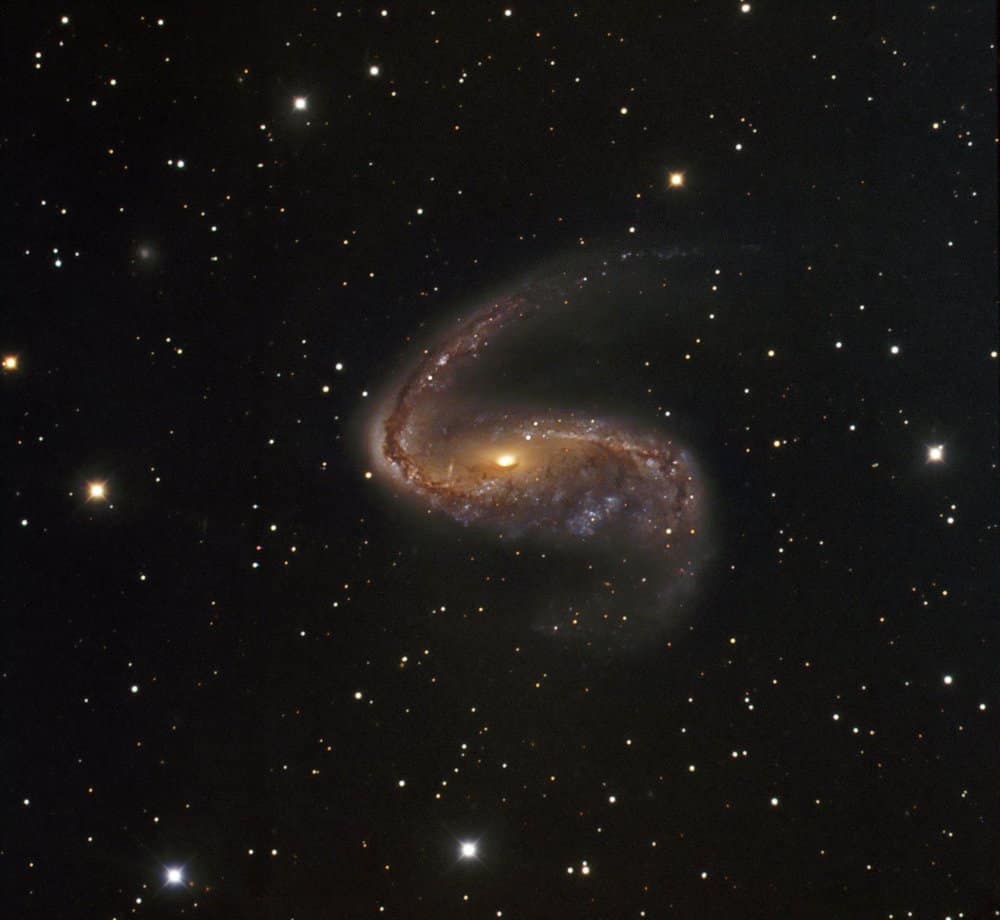
More Posts
- Rhythm Roots Workshop 9-15-22
- Cosmos Sh2-115 Abell 71
- Snooky Pyror
- Roy Acuff
- Cannonball Adderley
- Arvell Shaw
- World Drumming Babatunde Olatunji
- Daily Roots Ali Haile
- Cosmos Sh2-126
- Ed King
- Joseph Jarman
- Israel López Valdés
- STOP WAR IN UKRAINE World Music GO_A
- Daily Roots The Revolutionaries
- Cosmos Orion Nebula JWST
- Douglas Ewart
- Bill Monroe
- Charles Brown
- Chu Berry
- World Music Rokia Koné